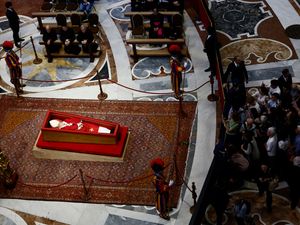Peter Rhodes on changing words, jumbo justice and the endless saga of the Birmingham Pub Bombings
Read the latest column from Peter Rhodes.

Our changing language. This pandemic takes old words and gives them new meaning. One hundred years from now, what will historians make of this item from the Daily Mail, describing the new series of Strictly Come Dancing: “Hostesses Claudia Winkleman and Tess Daly were socially distanced but the dancers had created bubbles earlier.”
And looking back at the early days of Covid reporting, how much will be revealed as wishful thinking, fake science, wild rumours and plain old-fashioned cobblers?
I am keeping the cutting from optimistic early September when new cases were running at only 2,000 a day, in which a national columnist admonished us for being scared of the virus thus: “Once upon a time we were Blighty, not Frighty.” Maybe so. But September's 2,000 daily cases have soared to 20,000 a day, largely because some people didn 't take it seriously. If we abandon Frighty, Armageddon comes to Blighty.
Yet the side-effects of Covid-19 shouldn't be ignored. What can really muck up your Christmas is not a profusion of viruses but a desperate shortage of plumbers and dentists. If you've just lost a filling and your pipes are frozen, comfort and joy suddenly vanish.
As I reported yesterday, Home Secretary Priti Patel may order an inquiry into the 1974 Birmingham Pub Bombings. Good. It is hard to describe to today's under-60s what an appalling episode this was. From the carnage of the night to the national shame as we learned that the wrong people had been prosecuted, it was a massive, and unsolved, story.
Journalists of my generation grew up with it, from the unspeakable sights and smells of the shattered pubs to the release, 17 years later of the wrongly-convicted Birmingham Six. My contributions included an interview in 1990 with one of the Six, Hugh Callaghan, behind bars at Long Lartin high-security prison. He was calm, optimistic, dignified. I wrote a long, carefully argued piece and ended by stating that I had "this awful, creeping feeling" that Hugh Callaghan was innocent. When Callaghan published his memoirs, Cruel Fate, three years later, he claimed that after our meeting I had written: "If this guy is an IRA man, I will eat my hat." Not my exact words. As far as I can recall, this is the only time in 50 years as a journalist that I have been misquoted by an interviewee.
Animal-rights activists are urging a NewYork court to rule that Happy, an elephant in Bronx Zoo, has legal rights and should be moved to an elephant sanctuary in Tennessee. The case could transform the legal status of all caged animals. So how long before a court orders an animal to be paid damages? And how long before an animal and its lawyer fall out over compensation? The lawyer wants his client to demand 20 million US dollars. The client wants to settle out of court for a bun.





